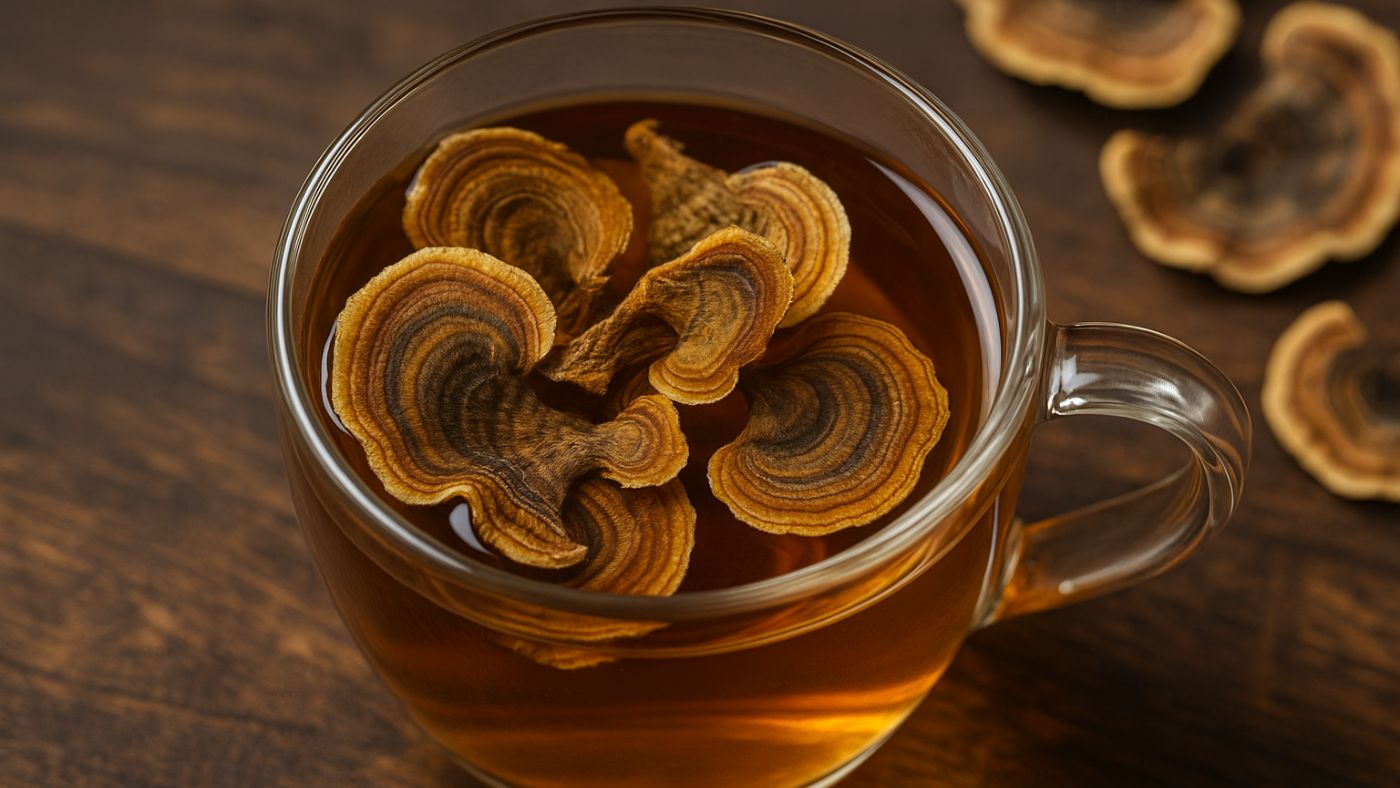Learn — Turkey Tail Mushroom
A Flavorful Fungus: What Do Turkey Tail Mushrooms Taste Like?
Turkey tail mushrooms are more than just a striking addition to the forest floor. They’ve become a staple in wellness circles and holistic healing for their powerful health benefits. But one question often stumps first-timers and mushroom enthusiasts alike. What do turkey tail mushrooms taste like? The answer lies in understanding both the physical structure of this mushroom and the methods used to consume it. What Is a Turkey Tail Mushroom? Turkey tail mushrooms, scientifically known as Trametes versicolor, are polypore fungi. They grow in layered, fan-shaped patterns on decaying wood, often resembling the fanned-out feathers of a wild turkey....
Turkey Tail Mushroom Spores: Emerging Immune-Boosting Benefits and Health Potential
Abstract Summary ObjectiveTo investigate the bioactive effects and optimal use of Turkey Tail mushroom spores in supporting immune function and overall health, evaluating their potential distinct benefits compared to the fruiting body and mycelium. ContextTurkey Tail mushroom spores are the reproductive particles released by the fungus, containing concentrated bioactive compounds such as polysaccharides and antioxidants. While the fruiting body and mycelium of Turkey Tail have been extensively studied, research on spores is limited but emerging, suggesting unique properties that may enhance immune response and antioxidant capacity. This research aims to clarify the spores' composition, biological effects, and potential as a...
The Science Behind Turkey Tail Mushroom: Immune Health, Gut Microbiome, and Therapeutic Potential
Abstract Summary ObjectiveTo investigate the efficacy of turkey tail mushroom supplements in enhancing immune function and supporting health, including their role in cancer adjunct therapy and gut microbiome modulation. ContextTurkey Tail mushroom, a traditional medicinal fungus used in East Asia, is gaining attention worldwide for its bioactive polysaccharides, notably polysaccharide-K (PSK) and polysaccharopeptide (PSP). These compounds are credited with immunomodulatory, antioxidant, and prebiotic effects. Despite growing clinical interest, standardized guidance on dosing, mechanisms, and specific health benefits remains underdeveloped. This study aims to synthesize current research to clarify Turkey Tail’s health impacts and practical applications. Methods Used ApproachA multidisciplinary review...
Turkey Tail Mushroom Tea: Immune-Boosting Benefits, Cancer Support & Sustainability
Abstract Summary Objective: This research aims to evaluate turkey tail mushroom tea's health benefits and sustainability (Trametes versicolor). It focuses on the tea's potential to enhance immune function, support gut health, and its role as an adjunct in cancer therapy. Additionally, it examines the environmental impact and cultivation practices associated with turkey tail mushrooms. Context: Turkey tail mushroom, known for its distinctive multicolored, fan-like appearance, has been utilized in traditional medicine for centuries, particularly in Asia. Modern scientific studies have identified bioactive compounds in turkey tail, such as polysaccharopeptide (PSP) and polysaccharide-K (PSK), which exhibit immunomodulatory and anticancer properties. The...



